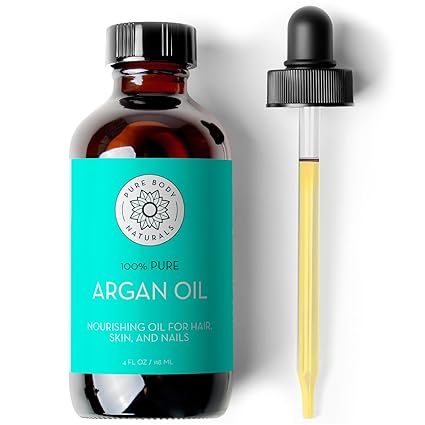Argan oil, derived from the kernels of the argan tree native to Morocco, is a popular natural oil known for its various skincare benefits. It is rich in essential fatty acids, antioxidants, and vitamin E, making it a versatile and nourishing option for skin and face care. Here are some potential benefits and uses of argan oil for the skin and face:
- Moisturization: Argan oil is well-regarded for its moisturizing properties. It can help hydrate the skin, leaving it softer and smoother. The fatty acids in the oil can provide a natural barrier to lock in moisture.
- Anti-Aging: The antioxidants and vitamin E in argan oil may help protect the skin from free radical damage, which is associated with premature aging. Regular use may help reduce the appearance of fine lines and wrinkles.
- Acne: Despite being an oil, argan oil is non-comedogenic, meaning it’s unlikely to clog pores. Some people find it helpful for managing acne-prone skin as it provides moisture without causing breakouts.
- Skin Conditions: Argan oil may be beneficial for individuals with certain skin conditions such as eczema or psoriasis due to its soothing and anti-inflammatory properties.
- Brightening and Even Skin Tone: Regular use of argan oil may contribute to a more even skin tone and a brighter complexion. It can be applied to areas with dark spots or hyperpigmentation.
- Sun Damage: The antioxidants in argan oil may help repair skin damage caused by exposure to the sun. However, it’s not a substitute for sunscreen, and sun protection should still be a priority.
- Cuticle and Nail Care: In addition to skin and face, argan oil can be applied to cuticles and nails to moisturize and strengthen them.

To use argan oil for the face, apply a few drops onto clean, damp skin and gently massage it in. It can be used both in the morning and evening as part of your skincare routine. Remember that individual skin types vary, so it’s advisable to perform a patch test before applying it widely. If you have specific concerns or skin conditions, consulting with a dermatologist is recommended.
